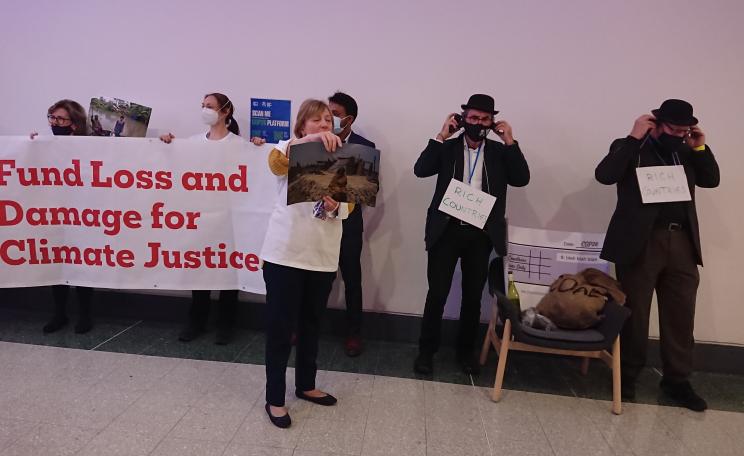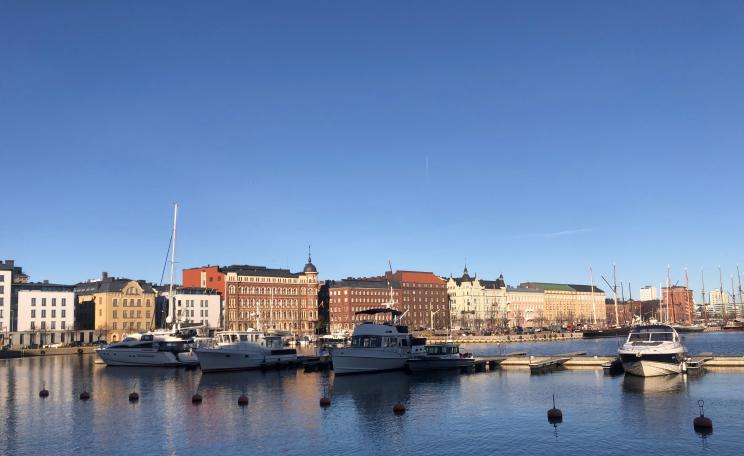Global leaders need to be reminded that it will soon be too late to resolve the climate crisis.
Taking the time to consider the interstellar perspective of humanity's place in the cosmos, reflecting on the incredible positioning of our earth in the universe, serves as an inspiration and a reminder of why we need to do our best not to f*** it up.
I had never been to a climate summit before COP26 and my experience in Glasgow has proven to be a depressing reality check of the doomed state of our planet. I am yet to meet someone who has responded to Cop26 with even a slight mention of positivity.
Michael Burton, from Armagh Observatory and Planetarium, and director of the short film titled, Our Place in the Cosmos, lead a discussion and presentation of his new film in the Green Zone at Glasgow Science Centre during the conference.
Refreshing
His film was displayed 360 degrees across the 15-metre hemispherical dome of the newly reopened planetarium, giving a truly immersive experience.
My experience in the planetarium was refreshing amongst the doom and gloom of the previous week at the climate summit. Michael Burton's film explains the earth's fragile position in the solar system in relation to the sun, the Milky Way and the universe - making it the only known life sustaining planet.
Attendees in the planetarium were sat on reclining chairs below a dome watching the film hover above earth and zoom in and out of the solar system showing the different aspects of the universe.
Our planet is placed in the galaxy mostly safe from violent activity such as supernovae. And our magnetic fields coming from the axis of the earth are important in protecting the planet.
A member of the audience asked about the potential of terraforming Mars and Michael Burton responded by putting emphasis on the need to control carbon emissions on this planet before working out how to put life on another.
Heartbreaking
The earth is so magnificently placed that it has been able to sustain life for billions of years, and to watch global leaders not only shorten the life of the planet for selfish temporary economically beneficial deals, but to fail to rise to the challenge of reducing carbon emissions, is simply heart breaking.
The story of our place in the cosmos explains the urgent need to control global heating. The short film shows how Venus, earth and Mars all shared similar properties during the first 600 million years of their lives during the Hadeon Eon.
Their subsequent evolution followed very different paths and is a reminder of why earth is so unique to the solar system.
Venus once possessed a large body of ocean which over time evaporated to form the thick atmosphere which exists today and makes the planet so warm. Mars too possessed water and where that went has been debated by scientists for decades.
Studies suggest due to the thin atmosphere solar winds were able to breakdown some water molecules into hydrogen and oxygen atoms. Newer studies suggest most of the water remains deep in Mars' rocks within minerals and salts.
Blip
Venus and Mars are the two planets closest to earth and initially all three planets were molten and volcanic meaning they were unable to sustain life.
Temperatures on Venus now average 461 degrees Celsius across the surface and Mars averages minus 46 degrees Celsius. This makes earth an incredibly unique temperature to be able to sustain many lifeforms for several eons.
The varying evolution of the planets is a reminder of earth's wondrous existence.
The experience of watching the film contrasted with the rest of the COP26 conference. One of the other events I attended was a panel of activists from Fridays For Future Scotland. The five teenagers told how they felt they had no choice but to prioritise calling out the government's inaction on climate breakdown over focusing on their own education.
Global leaders need to be reminded that it will soon be too late to resolve the climate crisis. Action must be taken, even though there will be cost. Is a blip in the ever increasing financial gains of the world's richest too high a price to pay in the grand scheme of human existence?
This Author
Ruby Harbour is the editorial assistant at The Ecologist.







